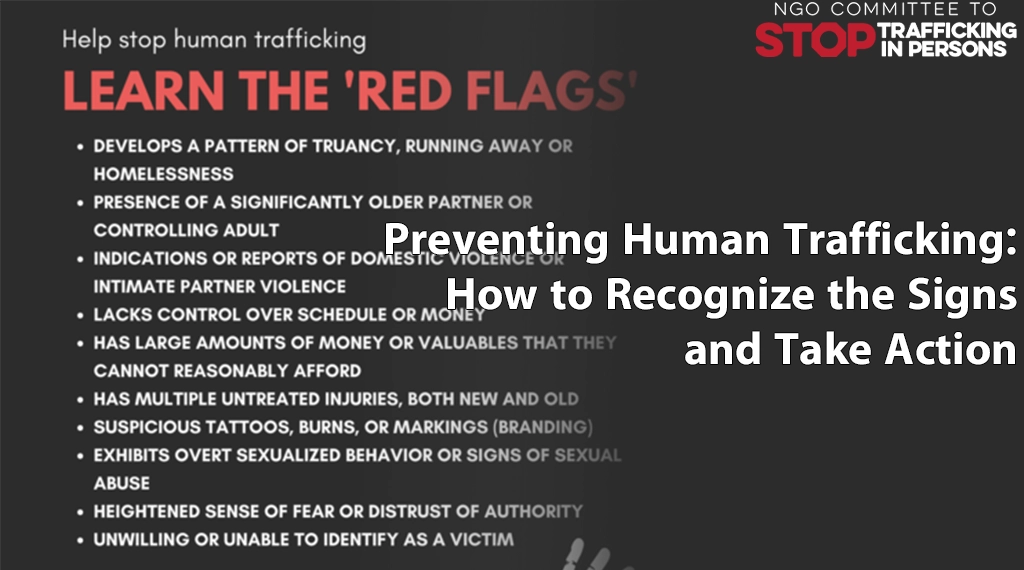NGOCSTIP – Preventing human trafficking is essential to protecting human rights and saving lives. This crime affects millions of people globally and manifests in various forms such as forced labor, sexual exploitation, and child trafficking. Although the issue is widespread, many individuals remain unaware of the dangers and proximity of trafficking activities. This article highlights how to prevent human trafficking by recognizing its signs, understanding its root causes, and taking decisive action.
Table of Contents
- What is Human Trafficking?
- Recognizing the Signs of Human Trafficking
- Causes of Human Trafficking
- How to Take Action in Preventing Human Trafficking
- Conclusion
What is Human Trafficking?
Human trafficking involves the recruitment, transportation, transfer, harboring, or receipt of individuals through threats, force, coercion, or deception for the purpose of exploitation. Traffickers trap victims in vulnerable situations, often isolating them and subjecting them to inhumane conditions. As one of the most profitable criminal industries, human trafficking generates billions of dollars annually. Understanding the mechanisms behind this crime is crucial for preventing human trafficking.
READ MORE : The Magic of Christmas at Casal del Infant: A Community Celebration
Recognizing the Signs of Human Trafficking
Preventing human trafficking begins with awareness of the warning signs. Key indicators include:
- Physical Signs: Victims may exhibit physical abuse, malnutrition, or exhaustion.
- Behavioral Indicators: Victims could appear fearful, anxious, or withdrawn.
- Controlled Movement: Traffickers often restrict victims’ movement and communication.
- Lack of Identification: Traffickers may withhold victims’ identification documents.
- Workplace Exploitation: Victims may work excessively long hours in poor conditions for little to no pay.
Recognizing these signs empowers communities to report suspicious activities and protect potential victims, thereby preventing human trafficking before it escalates.
Root Causes of Trafficking
A variety of social, economic, and political factors drive human trafficking. The primary causes include:
- Poverty and Economic Inequality: Economic hardship drives individuals to seek opportunities, making them vulnerable to traffickers.
- Lack of Education: Limited knowledge about human trafficking increases vulnerability. Education is key to prevention.
- Conflict and Political Instability: Wars and conflicts displace populations, increasing susceptibility to trafficking.
- Gender Inequality: Women and girls are disproportionately targeted for sexual exploitation. Addressing gender disparities is vital for prevention.
- Weak Legal Systems: Inadequate laws and enforcement enable traffickers to operate with impunity. Strengthening legal frameworks is essential to preventing human trafficking.
How to Take Action in Preventing Human Trafficking
Preventing human trafficking requires collaboration and effort at every level. Here are actionable steps to make a difference:
- Educate Yourself and Others: Attend workshops, read resources, and share information on human trafficking. Increased awareness strengthens communities.
- Support Anti-Trafficking Organizations: Contribute by volunteering or donating to non-profits that combat human trafficking.
- Report Suspicious Activities: Reporting potential trafficking situations to local authorities or dedicated hotlines can save lives.
- Advocate for Policy Reform: Support stronger laws and better victim protection policies by engaging with policymakers.
- Promote Ethical Consumerism: Choose products from companies that prioritize fair trade and ethical labor practices. Conscious consumerism helps reduce the demand that fuels trafficking.
Conclusion
Preventing human trafficking requires awareness, compassion, and action. By recognizing signs, addressing root causes, and participating in prevention efforts, individuals can play a critical role in combating this global injustice. Together, we can preserve freedom and dignity for all, creating safer communities worldwide.
